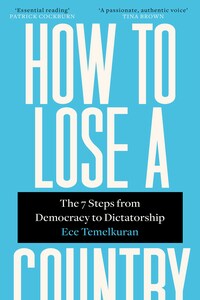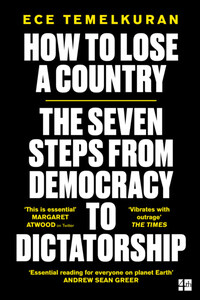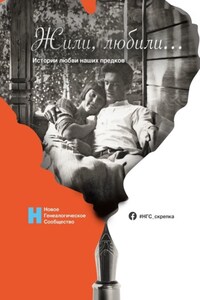The fighter jets are breaking the dark sky into giant geometric pieces as if the air were a solid object. It’s 15 July 2016; the night of the attempted coup in Turkey. I am piling pillows up against the trembling windows. I guess they’ve just dropped a bomb on the bridge, but I can’t see any fire. People are talking on social media about the bombardment of the Parliament Building. ‘Is this it?’ I ask myself. ‘Is tonight the Reichstag fire for what remains of Turkish democracy and my country?’
On TV, a few dozen soldiers are barricading the Bosporus bridge, shouting at the startled civilians: ‘Go home! This is a military takeover!’
Despite their huge guns, some of the soldiers are clearly terrified, and all of them look lost. The TV says it’s a military takeover, but this is not a coup as we know it. Coups usually wear a poker face – there’s no hustling or negotiating, and certainly no hesitation when it comes to using the heavy weaponry. The absurdity of the situation sees sarcasm kick in on social media. This kind of humour is not necessarily aiming for laughter; it’s more of a contest in bitter irony, which seems normal only to those engaged in it. The jokes mostly concern the idea that this is a staged act to legitimise the presidential system – rather than the parliamentary one – that President Recep Tayyip Erdoğan has long been asking for, a change that would hand him even more power than he already has as the de facto sole ruler of the country.
The dark humour disappears as the skies over Istanbul and Ankara become busy hives of fighter jets. We are learning the language of war in real time. What I’d thought was a bomb was actually a sonic boom – the blast-like sound fighter jets make when they break the sound barrier. This is the proper terminology for the air breaking into giant pieces and raining down on us as fear: fear of realising that before the sun rises we might lose our country.
People in the capital city of Ankara are now trying to differentiate between sonic booms and the sound of real bombs hitting Parliament and the intelligence service headquarters. The catastrophe unfolding in front of our eyes is constantly blurred by the absurdity of the news reports on our screens. Live on air, MPs are running around Parliament trying to find the long-forgotten air-raid shelter, and when they finally do locate it, nobody can find the keys, while outside in the streets people dressed in their pyjamas are kicking tanks, cigarettes in their mouths, and shouting at the jets.
A communications explosion is occurring on our TV screens, and many of us know that this is very much not normal. Turkey’s recent history has taught us that a coup starts with the army taking politicians into custody and shutting down news sources. Also, coups tend to happen in the early hours of the morning, not during television prime time. In this meticulously televised coup, government representatives appear across TV channels all night long, calling on the people to take to the streets and oppose the army’s attempted takeover. The internet does not slow down in the way it usually does whenever something occurs to challenge the government; on the contrary, it’s faster than ever. Even so, the speed and intensity of the night’s events do not allow the sceptics to properly process these strange details.
Erdoğan communicates using FaceTime, with his messages broadcast on CNN Turk. He calls everyone out into the city centres. Like most people, I do not anticipate the government’s supporters taking to the streets to confront the military. Since the founding of the modern Turkish republic in 1923, under Kemal Atatürk, the army has traditionally been the most respected institution in the country, if not the most feared. But apparently much has changed since the last military coup in 1980, when it was the leftists who resisted and were imprisoned and tortured; the president’s call resonates with thousands.









